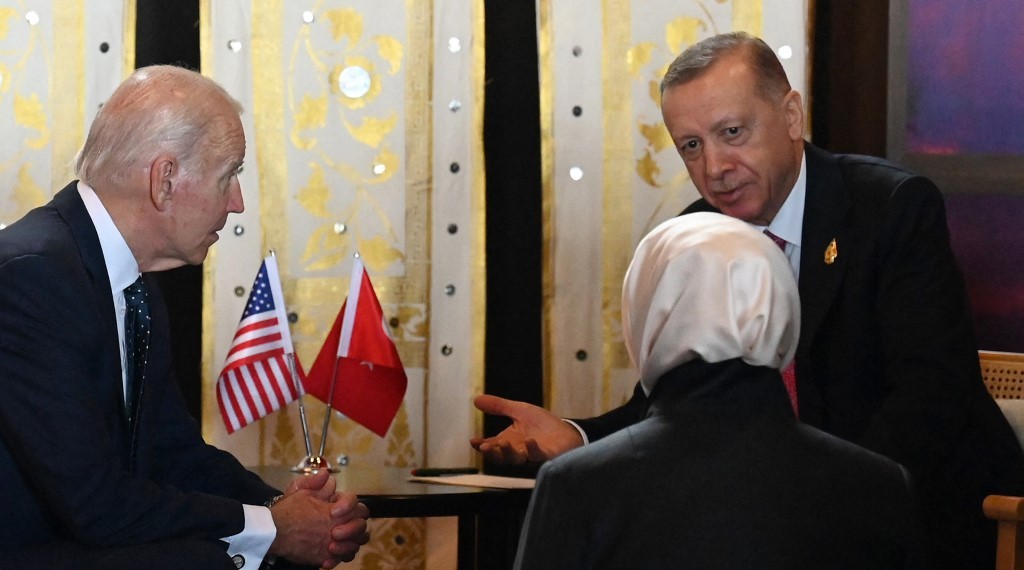Fatih Yurtsever*
According to Turkish Interior Minister Süleyman Soylu, who is close to Nationalist Movement Party (MHP) leader Devlet Bahçeli, the outlawed Kurdistan Workers’ Party (PKK) and its Syrian branch, the People’s Defense Units (YPG), were responsible for a deadly bombing on İstiklal Street, a busy pedestrian throughfare in İstanbul’s Taksim district. Six people were killed, and dozens were injured in the bombing. In response to the terrorist attack in İstanbul, the Turkish Armed Forces (TSK) subsequently carried out airstrikes under the code name “Claw-Sword” against 89 targets in northern Syria and Iraq that were allegedly used for terrorist attacks against Turkey. According to an official statement issued by the Ministry of Defense, the TSK invoked the right to self-defense against the PKK and YPG under Article 51 of the UN Treaty, despite the fact that the PKK and YPG have denied any involvement in the attack.
However, the mystery surrounding the terrorist attack in Taksim has not yet been cleared up, with many questions still needing to be answered. There is no logical explanation for the YPG to have carried out a terrorist attack in Turkey, especially before the G-20 summit in Indonesia, as international support for the YPG might be cut off. It’s no secret that Turkish President Recep Tayyip Erdoğan has wanted to launch another military operation in northern Syria since October. As the YPG would not want to give Erdoğan a pretext to persuade world leaders at the G-20 summit that he would be justified in conducting a military operation in northern Syria, the likelihood that the YPG carried out the terrorist attack is very low.
Although Russia had previously prohibited Turkish fighter jets from using Syrian airspace, it allowed them to do so in this operation. Erdoğan’s re-election as president of Turkey is crucial for Russia’s interests. Creating the impression that terrorism is being fought effectively always contributes positively to a rise in support for Turkish political parties. For this reason, Russia supports any attempt to win Erdoğan votes in the 2023 election. Additionally, Russia needs Turkey’s help to circumvent the economic sanctions imposed after the invasion of Ukraine. Russian companies continue their trade with EU countries thanks to parallel export and re-export through Turkey. On the diplomatic level, Russia conveys its messages to NATO and the EU through Turkey. In a sense, Turkey acts as a diplomatic bridge between Russia and the EU and NATO countries. Thanks to Erdoğan’s diplomatic efforts, the Black Sea grain corridor agreement, which gave Ukrainian grain access to world markets and expired on Nov. 19, was renewed. Russia needs Turkey’s help to export grain and fertilizer, significant sources of revenue for Russia and both of which will soon be exported to world markets through Turkey. Therefore, it was not too difficult for Erdoğan to persuade Putin to remain neutral on Turkey’s airstrikes in northern Syria and to allow Turkish jets to operate in Russia’s so-called airspace in the region.
For Turkey, securing US support was as crucial as getting Russia’s support for an airstrike on Syria. The bombing in Taksim that killed six people drew the attention to Turkey of the leaders of the countries participating in the G-20 summit. Interior Minister Soylu’s statement that Turkey did not accept the condolences of the US Embassy in Ankara for the casualties, which could be interpreted as US support for the terrorist attack in Taksim, also strengthened Erdoğan’s hand ahead of his meeting with US President Joe Biden. Indeed, the US government knows Erdoğan well enough to know what he is doing and why. For this reason, I believe that Biden predicted that Erdoğan would bring up airstrikes in northern Syria and Iraq during their bilateral meeting.
The Erdoğan government is using Sweden and Finland’s NATO membership applications, which need the Turkish parliament’s approval, as leverage against the US and NATO because Erdoğan knows that it is vital for NATO and important for the US to complete the membership process of both countries as soon as possible.
Therefore, the US government could remain silent about an operation against the PKK/YPG in northern Syria in return for the Erdoğan government’s commitment to complete the NATO accession process of Sweden and Finland.
US authorities could have known about the operation in advance since the US Consulate General in Erbil warned US citizens of a possible Turkish air operation in northern Syria and Iraq a few days before the operation began.
As a result, Erdoğan’s government allowed a terrorist attack to be carried out in Taksim, most likely by members of the Free Syrian Army, to justify airstrikes in northern Syria and Iraq before the elections. US President Biden also may have stayed silent for a limited air operation in return for Erdoğan’s commitment to start the approval process in parliament for Sweden and Finland’s NATO accession. This air operation has shifted the public’s focus from the Taksim bombing to the Turkish Air Force’s airstrikes. It would not be wrong to say that the Turkish fighter jets not only hit targets in Syria and Iraq but also eliminated the possibility of solving the Taksim bombing and made it impossible to determine the real perpetrators behind it.
* Fatih Yurtsever is a former naval officer in the Turkish Armed Forces. He is using a pseudonym out of security concerns.

